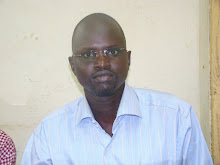By Atok Dan Baguoot.
Public transport sector in major towns in Southern Sudan is always a headache especially during the rush hours more so in Juba town where almost 80% of the roads are undergoing maintenance and tarmacking, given the normal traffic police duty in providing decent security protection to our VIPs and other credential visitors of the South who normal need special services when on the road. Wazarat road links Juba town with Konyokonyo, Ministries and other busy trading centres in Juba. It is the only service providing pathway which can ease public and private businesses in term of quick service delivery in the autonomous capital.
As a poor young nation that has just emerged out of the longest war on the continent, almost 98% of Juba population lack personal vehicles which facilitate faster transport to their daily workplaces hence, public service vehicles (psv) are highly use regardless of social status. According to GoSS Labour and Public Services Ministry the normal working minute starts at 8:30am -5:00pm and within that time allocated all workforces have to click in at that very time so that you end up having worked for eight hours at the end of the day.
The regular stressful experience on Wazarat road in Juba is the intermittent discrimination of public vehicles on that very road in the name of providing security to VIPs. Public buses are denied the use of the road especially during the rush hours which normally resulted into late reporting to workplaces whose effect is reduced performance in economical logical viewpoint. There is a need for decent protection of our VIPs given the dominance of terrorism and terror minded activities all over the globe, and also to offer them special time as their calendars are occupied, but there is also a need to weigh yield of combined efforts exerted by the entire public whose success in the economy depends shall be judged.
Public service vehicles users formed 95% of our workers hence, their contribution is also 95% and this is a fact of reality if we are to liberate ourselves economically in order to realize total freedom. Hoisting our beautiful flag higher above the sea level is just an inch unless our efforts on market go higher than that and the barometer of determining it, is efficient transport system. We need time and road apportionment. Signals of VIPs motorcades are enough to make public buses offer safe passage for our beloved leaders unlike putting total barricades for some hours in the name of offering safe journey. It has a quality of discrimination because while prohibiting public service buses, GoSS numbered cars and other private motorists do go simultaneously while offering space for VIPs motorcades to penetrate. Here, it doesn’t make sense when we want to talk in term of security provision to VIPs.
To me these private motorists/cars pose more threats than even public vehicle frustrated travelers battling with life to ensure that bread is availed on the table of his/her family at the end of the day and denying them quick travel their markets/workplaces at times is like depriving them oxygen. Lastly, traffic police have to patrol to monitor the movements of these economic crucial sectors without subjecting to them to high time. I’m a traveler of the said department and I normally find it hard to tolerate because my normal morning plan is to get to my work in time with a lot of ease.
Atok Dan is a journalist working with Southern Sudan radio and can be reached at atokfuture@gmail.com
Subscribe to:
Post Comments (Atom)

No comments:
Post a Comment